This impressive list of awards and medals gives the reader some idea of the extent of the honours bestowed upon General Sir James Rupert Everard KCB CBE, who served as NATO’s Deputy Supreme Allied Commander Europe from 2017-2020. Characteristically modest, he talked to us about his fascinating career, his thoughts on the 21st century British Army, the North Atlantic Treaty, of how relevant the awarding of medals is to a modern day soldier, and the favourite of his own medals:
“A day after I commissioned from the Royal Military Academy Sandhurst in April 1983, I joined the 17th / 21ST Lancers in Germany on Range 6C, NATO-Truppenübungsplatz Bergen, West Germany. The Regiment (The Death or Glory Boys, with the instantly recognisable ‘motto’ (skull and crossbones / Death or Glory) was then equipped with the Chieftain Main Battle Tank. I had not attended my Special-to Arm training (and so knew nothing at all about tanks), but in those days this was not considered a barrier to commanding a tank in order to learn. And you can learn a lot quickly from a strong Squadron Leader, Troop Sergeant and Troop Corporal with over 37 years’ experience on tanks behind them. [Of note, Andrew Cumming went on the 2-Star rank, and both Bill Major and Rick Dzierzynski went on to Commission (Late Entry), so I had the best of tutors.]
“The 17th / 21st Lancers had a reputation for working and playing hard and I think were universally admired for doing so. What I did not realise at the time was what an exceptionally good Regiment it was. We talk a lot about equality and diversity now, but it was instinctive even then in the 17th / 21st Lancers. No one cared about race, colour, creed or sexuality. Individual excellence was applauded, but seen as secondary to your commitment to the greater good of collective achievement. Tank soldiering requires trust and loyalty between the tank crew (‘I love it in here. The best job I ever had’ – Fury, 2014), and the disciplined determination of the wolf-pack. Mistakes were accepted. Mediocrity was not. These were the days of the Cold War, and readiness for combat was taken extremely seriously, constantly tested and validated.
“Only a limited number of personnel were allowed to be away from the Regiment at any one time. We changed for dinner, sitting down with the same 10-30 Officers (and an occasional guest) each night, often to the same stories and food of varying quality: try sardines on a bed of toast, soaked in gin and set alight (in the Crimea this technique was said to make even the most unpalatable food edible). You were not expected to marry before the age of 25. Regiment first. If it sounds dull, it was anything but dull. You made your life in Germany, and I think we made it well on the foundations of military professionalism – with help from tradition, tax-free cars, booze and cigarettes (I no longer smoke, but a packet cost 25 pfennig). Even now, I meet people who remember with joy coming to Munster for extravagant party weekends.
“The 17th / 21st Lancers amalgamated with the 16th / 5th Lancers, to amalgamate again with the 9th / 12th Lancers, until now only the Royal Lancers are left – with a boatload of fine pictures, silver and traditions – to carry on the fight. We preserved the Motto. We do not stand to toast Her Majesty the Queen (loyalty unquestioned). We can wear our Sam Browne over our left shoulder. When in attendance our Old Comrades always lead the march-off and never follow at the back. And on and on …
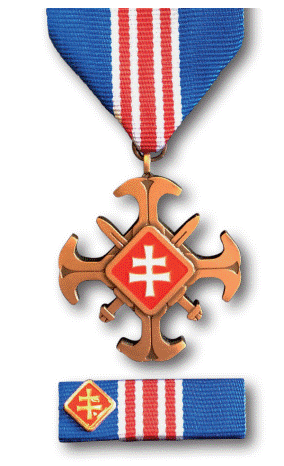
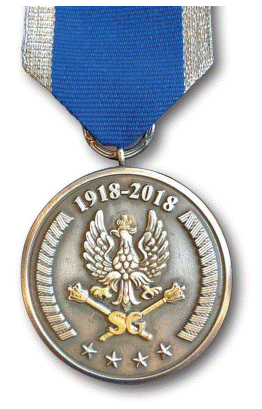
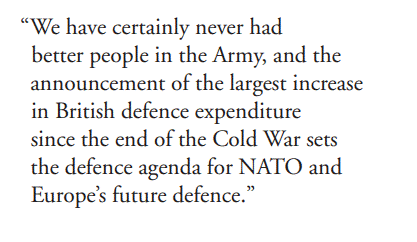
“Do I regret the downsizing of the Armed Forces and the loss of famous Regiments? Will history judge the reduction in military muscle as ostrichism or just the reality of hard choices given the priority placed on Defence? I could make a case for both arguments, but in the end we have to deal with the world as it is, not as we might wish it to be. We have certainly never had better people in the Army, and the announcement of the largest increase in British defence expenditure since the end of the Cold War sets the defence agenda for NATO and Europe’s future defence. It is also a masterstroke of British statecraft for it reminds other Europeans of Britain’s vital importance to their security and defence post Brexit, signals to the new Biden administration that London will invest in a twenty-first century special relationship, and warns secessionists of the power of the British state to use defence investment to thwart them. So, the future is brighter for Defence and I still recommend the Army as a brilliant way-point in life.
“I ended my time in the Army in September 2020 as the Deputy Supreme Allied Commander Europe (DSACEUR). The second best job I (we) ever had, as a member of the 5-strong Command Group and primarily responsible for finding the forces for all Allied Missions, Operations and Tasks (and doing all the things that SACEUR would like to do if he had the time). There is nothing not to like about working in this 30-nation Alliance. It is worth reminding people sometimes that the North Atlantic Treaty signed on 4th April 1949 is an exceptional document, in its brevity, in the simplicity of its language and in the genius of its fundamental idea (giving the US a seat at the European security table) and purpose (captured primarily in Articles 3, 4, 5 and 6) to unite efforts for collective defence for the preservation of peace and security, based on the principles of democracy, individual liberty and the rule of law.
“We should all remember that since 1949 NATO has been an extraordinary instrument of building common purpose between Allies. This constancy has – in hard times – always overcome the necessarily different, often disparate and sometimes contradictory perspectives and interests of Allies. Given the security challenges the West is facing and the UK’s renewed global ambitions, the West and UK need more NATO, not less.
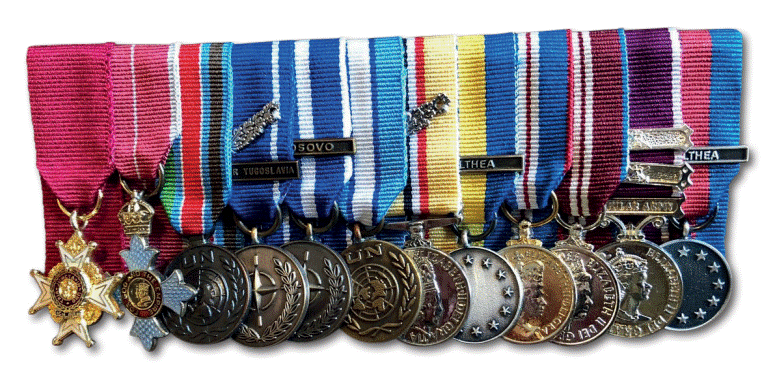
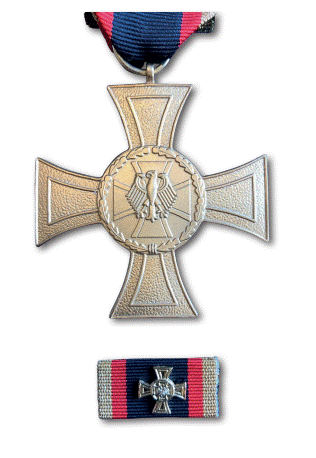
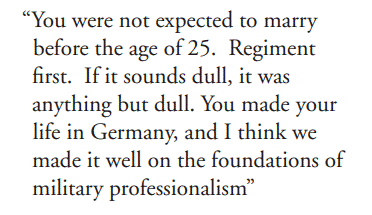
“The awarding or not of medals has always been a minefield of delight and disappointment. Over and above the campaign / operation medals (awarded when an individual meets a time-based criteria) the Armed Forces also have a quota against which it can bid for higher honours (both operational and non-operational). Over the years we have encouraged nominations to be submitted, but while the bids have increased the quota has not. To secure an award requires not only the opportunity to shine (a gallant act or a performance over and above what would be expected), then the good fortune that someone recognises what you have done and has the time and capacity to write a citation. This citation then travels through a multi-layer Boarding process, with fallers at every stage.
“I leave the Army with a total of 2 awards I can wear around my neck, and 11 medals that I wear on my chest (or 13 miniatures). Three I would have expected to receive, on the basis I had done no harm: The Queen Elizabeth II Golden Jubilee Medal 2002, The Queen Elizabeth II Diamond Jubilee Medal 2012 and the Long Service and Good Conduct Medal with Clasp (2). Six are campaign / operation medals (Operation GRAPPLE, Operation RESOLUTE, Operation AGRICOLA , Operation TOSCA, Operation TELIC and Operation ALTHEA). The remaining two medals come from my time as DSACEUR: The NATO Meritorious Service Medal (2020) and the European Security and Defence Policy Medal (2019) for exemplary service while Commanding the EU Operation is Bosnia-Herzegovina for just over 2 years (the last Brit to do so).
“I was awarded an OBE in 1999 for my first tour in Kosovo as the Military Assistant to General Sir Mike Jackson. I also have two Queen’s Commendations for Valuable Service (QVCS) worn on my OP RESOLUTE and TELIC medals, awarded when I was Chief of Staff of the 4th Armoured Brigade and latterly as Commander 20th Armoured Brigade in Iraq. “The foreign medals were all unexpected, making them very special, even though I do not wear them. The German Gold Cross of Honour for Exemplary and Meritorious service was awarded by Ursula von der Leyen in recognition of the work done at her request to improve UK-German military-to-military relationships and interoperability while I was Commander Field Army. The Hungarian Merit for the Alliance and The Commemorative Cross of the Chief of the General Staff of the Armed Forces of the Slovak Republic 3rdGrade (Bronze) followed work done on behalf of these Allies.
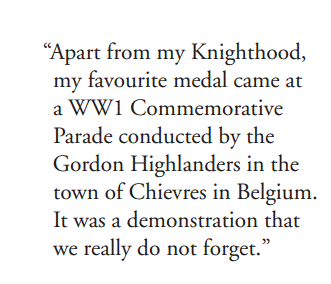
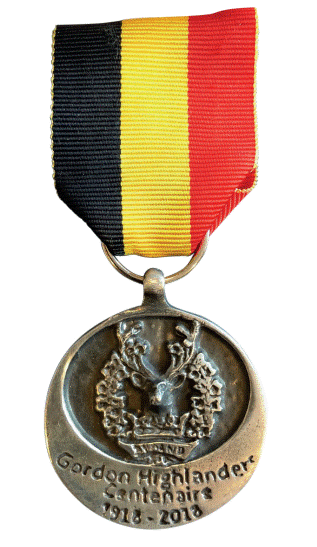
The 100th Anniversary Medal on the formation of the Polish General Staff was just a question of being in the right place at the right time.
“Apart from my Knighthood, my favourite medal came at a WW1 Commemorative Parade conducted by the Gordon Highlanders in the town of Chievres in Belgium. It was a demonstration that we really do not forget.”

